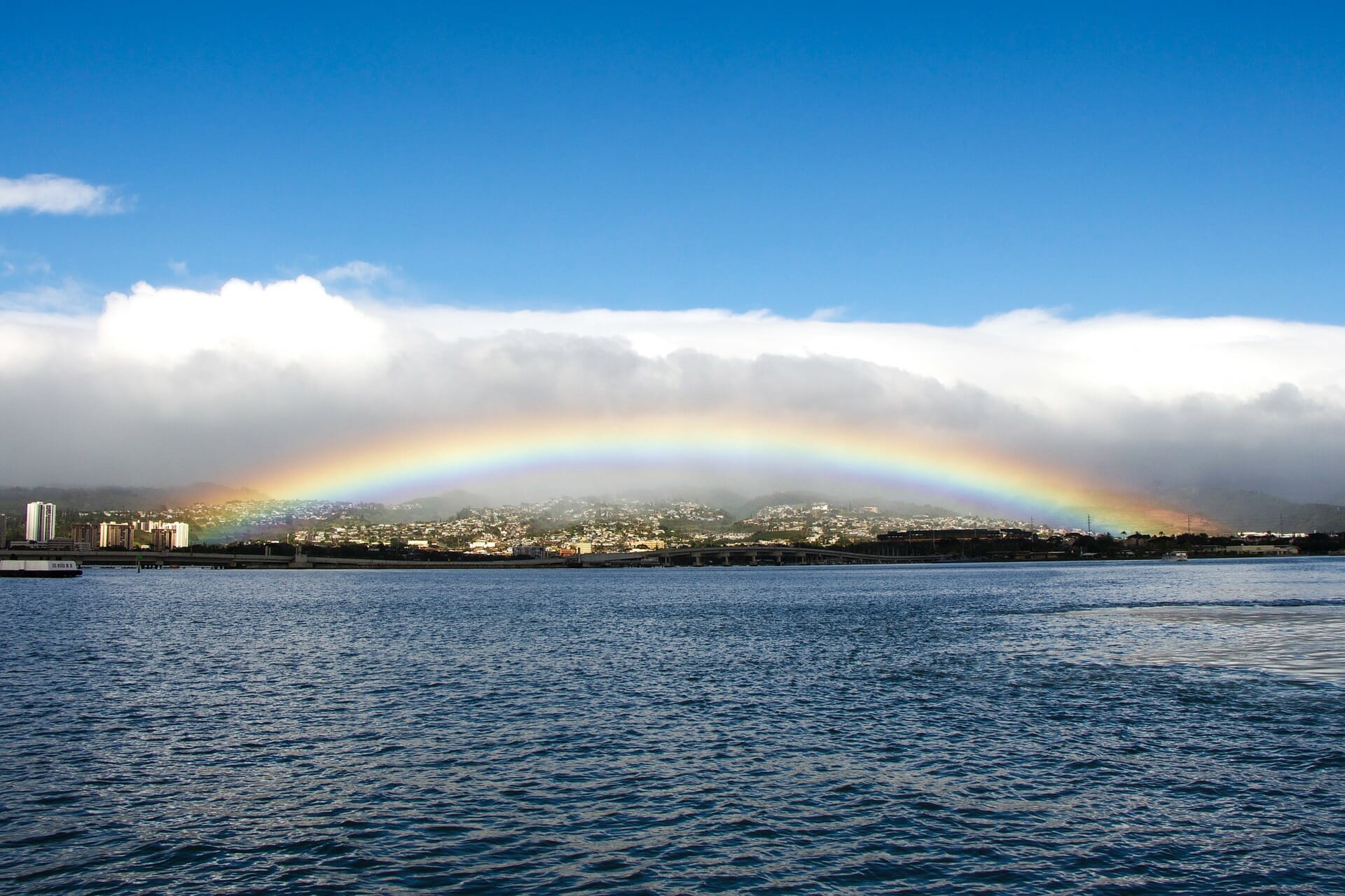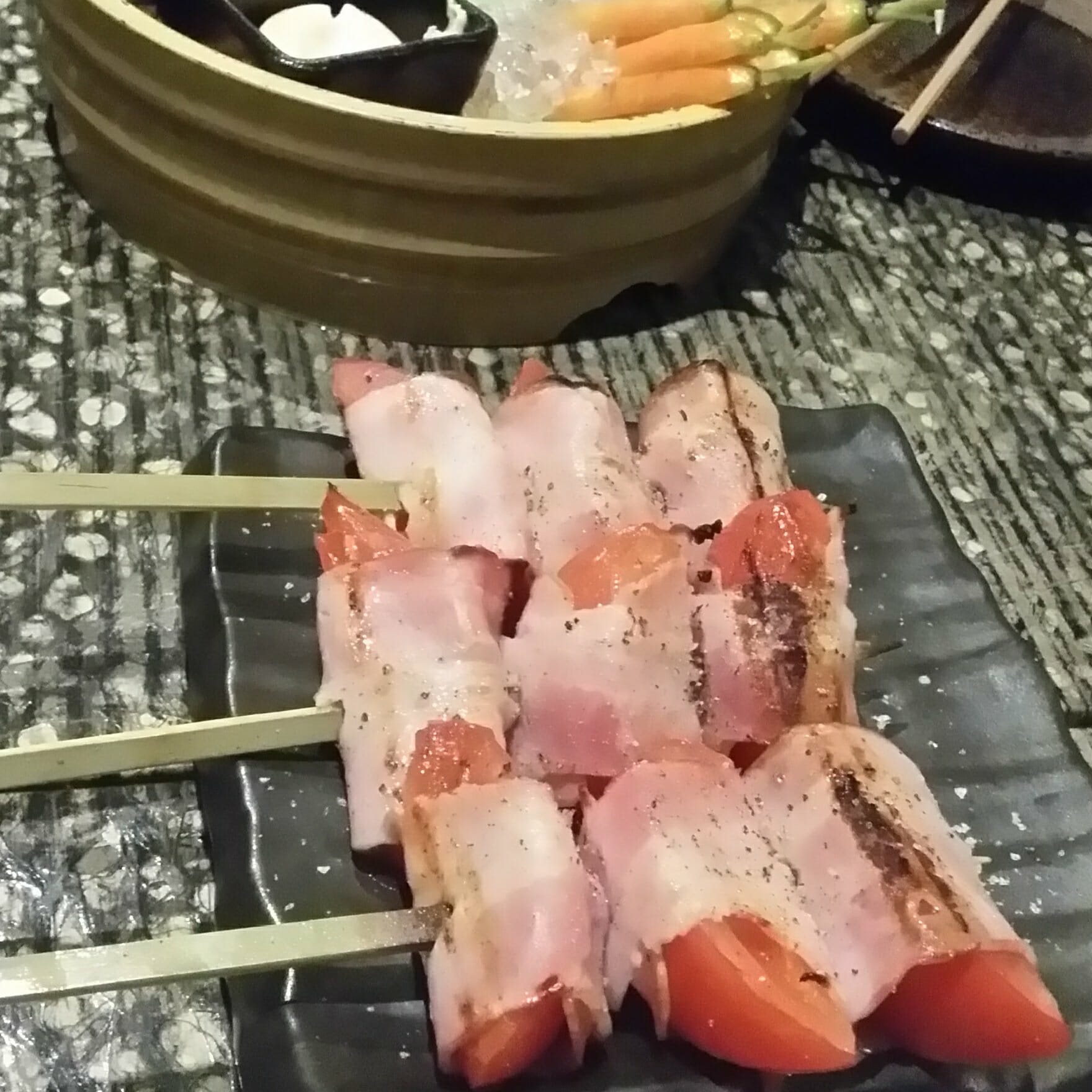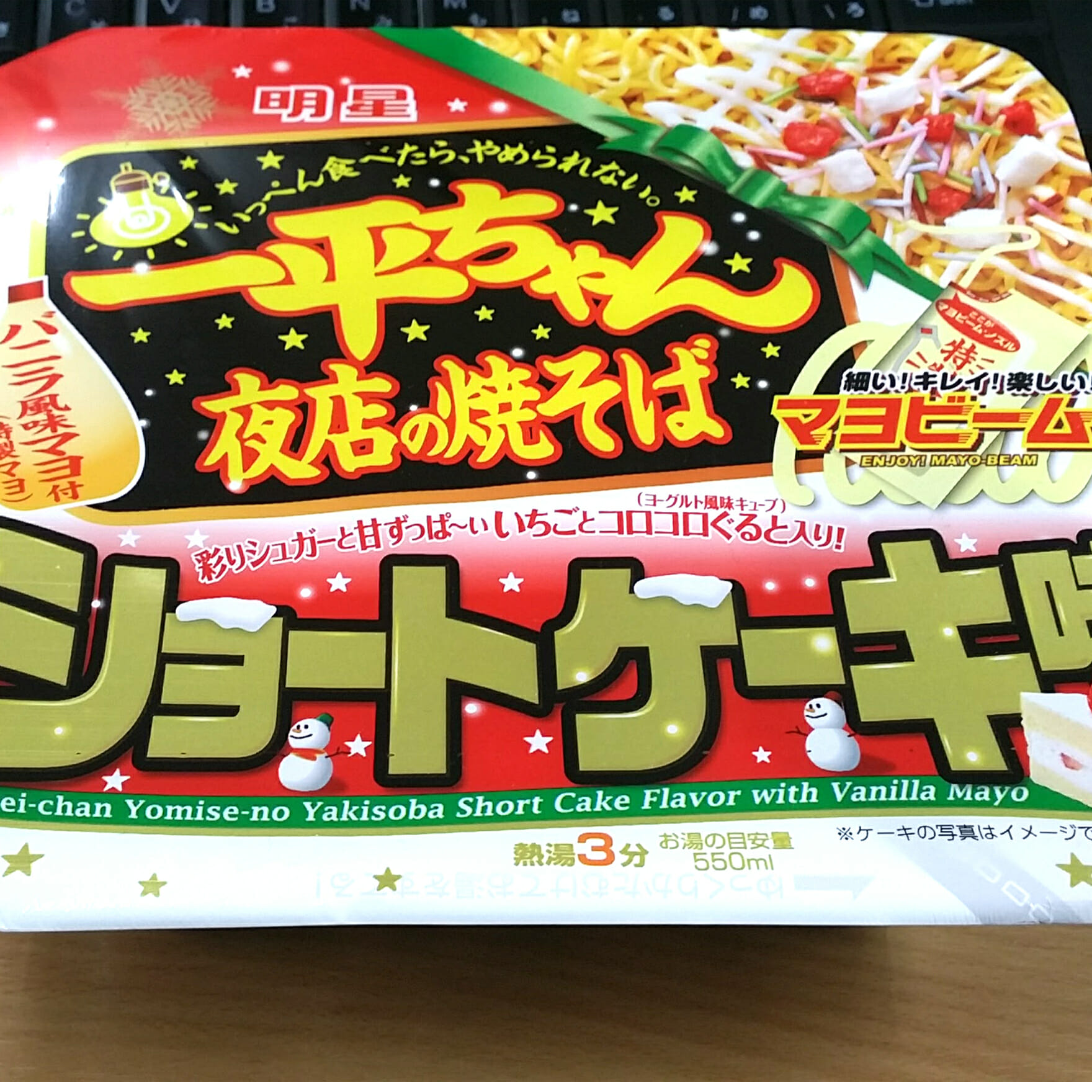一歩踏み出した気がします。過去に犯した過ちに対して謝罪以上に大切なのは、二度と同じ過ちは起こさないという強い決意と相互理解だと思います。この決意をずっと守っていきましょう。
阿部首相の所感全文
オバマ大統領、ハリス司令官、ご列席の皆さま、そして、すべての、アメリカ国民の皆さま。
パールハーバー、真珠湾に、いま私は、日本国総理大臣として立っています。
耳を澄ますと、寄せては返す、波の音が聞こえてきます。
降り注ぐ陽の、やわらかな光に照らされた、青い、静かな入り江。
私のうしろ、海の上の、白い、アリゾナ・メモリアル。
あの、慰霊の場を、オバマ大統領とともに訪れました。
そこは、私に、沈黙をうながす場所でした。
亡くなった、軍人たちの名が、しるされています。
祖国を守る崇高な任務のため、カリフォルニア、ミシガン、ニューヨーク、テキサス、さまざまな地から来て、乗り組んでいた兵士たちが、あの日、爆撃が戦艦アリゾナを二つに切り裂いたとき、紅蓮の炎の中で、死んでいった。
75年が経ったいまも、海底に横たわるアリゾナには、数知れぬ兵士たちが眠っています。
耳を澄まして心を研ぎ澄ますと、風と、波の音とともに、兵士たちの声が聞こえてきます。
あの日、日曜の朝の、明るく寛いだ、弾む会話の声。自分の未来を、そして夢を語り合う、若い兵士たちの声。最後の瞬間、愛する人の名を叫ぶ声。
生まれてくる子の、幸せを祈る声。
一人、ひとりの兵士に、その身を案じる母がいて、父がいた。
愛する妻や、恋人がいた。
成長を楽しみにしている、子どもたちがいたでしょう。
それら、すべての思いが断たれてしまった。
その厳粛な事実を思うとき、私は、言葉を失います。
その御霊よ、安らかなれー。
思いを込め、私は日本国民を代表して、兵士たちが眠る海に、花を投じました。
オバマ大統領、アメリカ国民の皆さん、世界の、さまざまな国の皆さま。
私は日本国総理大臣として、この地で命を落とした人々の御霊に、ここから始まった戦いが奪った、すべての勇者たちの命に、戦争の犠牲となった、数知れぬ、無辜の民の魂に、永劫の、哀悼の誠を捧げます。
戦争の惨禍は、二度と、繰り返してはならない。
私たちは、そう誓いました。
そして戦後、自由で民主的な国を創り上げ、法の支配を重んじ、ひたすら、不戦の誓いを貫いてまいりました。
戦後70年間に及ぶ平和国家としての歩みに、私たち日本人は、静かな誇りを感じながら、この不動の方針を、これからも貫いてまいります。
この場で、戦艦アリゾナに眠る兵士たちに、アメリカ国民の皆さまに、世界の人々に、固い、その決意を、日本国総理大臣として、表明いたします。
昨日、私は、カネオへの海兵隊基地に、一人の日本帝国海軍士官の碑(いしぶみ)を訪れました。
その人物とは、真珠湾攻撃中に被弾し、母艦に帰るのをあきらめ、引き返し、戦死した、戦闘機パイロット、飯田房太中佐です。
彼の墜落地点に碑を建てたのは、日本人ではありません。
攻撃を受けた側にいた、米軍の人々です。
死者の、勇気を称え、石碑を建ててくれた。
碑には、祖国のため命を捧げた軍人への敬意を込め、「日本帝国海軍大尉」と、当時の階級を刻んであります。
The brave respect the brave.
「勇者は、勇者を敬う」
アンブローズ・ビアスの、詩(うた)は言います。
戦い合った敵であっても、敬意を表する。
憎しみ合った敵であっても、理解しようとする。
そこにあるのは、アメリカ国民の、寛容の心です。
戦争が終わり、日本が、見渡す限りの焼け野原、貧しさのどん底の中で苦しんでいた時、食べるもの、着るものを惜しみなく送ってくれたのは、米国であり、アメリカ国民でありました。
皆さんが送ってくれたセーターで、ミルクで、日本人は、未来へと、命をつなぐことができました。
そして米国は、日本が、戦後再び、国際社会へと復帰する道を開いてくれた。
米国のリーダーシップの下、自由世界の一員として、私たちは、平和と繁栄を享受することができました。
敵として熾烈に戦った、私たち日本人に差しのべられた、こうした皆さんの善意と支援の手、その大いなる寛容の心は、祖父たち、母たちの胸に深く刻まれています。
私たちも、覚えています。
子や、孫たちも語り継ぎ、決して忘れることはないでしょう。
オバマ大統領とともに訪れた、ワシントンのリンカーン・メモリアル。
その壁に刻まれた言葉が、私の心に去来します。
「誰に対しても、悪意を抱かず、慈悲の心で向き合う」。
「永続する平和を、われわれすべてのあいだに打ち立て、大切に守る任務を、やりとげる」。
エイブラハム・リンカーン大統領の、言葉です。
私は日本国民を代表し、米国が、世界が、日本に示してくれた寛容に、改めて、ここに、心からの感謝を申し上げます。
あの「パールハーバー」から75年。
歴史に残る激しい戦争を戦った日本と米国は、歴史にまれな、深く、強く結ばれた同盟国となりました。
それは、いままでにもまして、世界を覆う幾多の困難に、ともに立ち向かう同盟です。
明日を拓く、「希望の同盟」です。
私たちを結びつけたものは、寛容の心がもたらした、the power of reconciliation、「和解の力」です。
私が、ここパールハーバーで、オバマ大統領とともに、世界の人々に対して訴えたいもの。
それは、この、和解の力です。
戦争の惨禍は、いまだに世界から消えない。
憎悪が憎悪を招く連鎖は、なくなろうとしない。
寛容の心、和解の力を、世界はいま、いまこそ、必要としています。
憎悪を消し去り、共通の価値のもと、友情と、信頼を育てた日米は、いま、いまこそ、寛容の大切さと、和解の力を、世界に向かって訴え続けていく、任務を帯びています。
日本と米国の同盟は、だからこそ「希望の同盟」なのです。
私たちを見守ってくれている入り江は、どこまでも静かです。パールハーバー。
真珠の輝きに満ちた、この美しい入り江こそ、寛容と、そして和解の象徴である。
私たち日本人の子どもたち、そしてオバマ大統領、皆さんアメリカ人の子どもたちが、またその子どもたち、孫たちが、そして世界中の人々が、パールハーバーを和解の象徴として記憶し続けてくれる事を私は願います。
そのための努力を、私たちはこれからも、惜しみなく続けていく。オバマ大統領とともに、ここに、固く、誓います。
ありがとうございました。
オバマ大統領の所感全文
Prime Minister Abe. On behalf of the American people, thank you for your gracious words, thank you for your presence here today. A historic gesture that speaks to the power of reconciliation, and the alliance between the American and Japanese peoples. A reminder that even the deepest wounds of war can give way to friendship and lasting peace.
Distinguished guests, members of our armed forces, and most of all survivors of Pearl Harbor and their loved ones. Aloha.
To Americans, especially to those of us who call Hawaii home, this harbor is a sacred place. As we lay a wreath or toss flowers into waters that still weep, we think of the more than 2,400 American patriots, fathers and husbands, wives and daughters, manning heaven’s rails for all of eternity. We salute the defenders of Oahu, who pull themselves a little straighter every December 7, and we reflect on the heroism that shone here 75 years ago. As dawn broke that December day, paradise never seemed so sweet. The water was warm and impossibly blue. Sailors ate in the mess hall, or readied themselves for church, dressed in crisp white shorts and T-shirts. In the harbor ships at anchor floated in neat rows — the California, the Maryland, and the Oklahoma. The Tennessee, the West Virginia, and the Nevada. On the deck of the Arizona the Navy band was tuning up.
That morning the ranks on men’s shoulders defined them less than the courage in their hearts. Across the island, Americans defended themselves however they could. Firing training shells, working old bolt-action rifles. An African-American mess steward, who would typically be confined to cleaning duties, carried his commander to safety, and then fired an anti-aircraft gun until he ran out of ammo.
We honor Americans like Jim Downey, a gunners mate first-class of the West Virginia. Before he raced to the Harbor his new bride pressed into his hand a verse of scripture. “The eternal God is thy refuge, and underneath are the everlasting arms.” As Jim fought to save his ship, he simultaneously gathered the names of the fallen so that he could give closure to their families. He said it was just something you do.
We remember Americans like Harry Pang, a fireman from Honolulu, who in the face of withering fire worked to douse burning planes until he gave his last full measure of devotion. One of the only civilian firefighters ever to receive the Purple Heart.
We salute Americans like Chief Petty Officer John Flynn. Who manned a 50-caliber machine gun for more than two hours and was wounded more than 20 times. Earning him our nation’s highest military decoration, the Medal of Honor.
And it is here that we reflect on how war tests our most enduring values. How even as Japanese-Americans were deprived of their own liberty during the war, one of the most decorated military units in the history of the United States was the 442nd Infantry Regiment, and its 100th infantry battalion, the Japanese-American Nisei.
In that 442nd served my friend and proud Hawaiian Daniel Inouye. A man who was a senator from Hawaii for most of my life, and with whom I would find myself proud to serve in the Senate Chamber. A man who was not only the recipient of the Medal of Honor and the Presidential Medal of Freedom, but was one of the most distinguished statesman of his generation as well. Here at Pearl Harbor, America’s first battle of the second World War roused a nation. Here in so many ways America came of age. A generation of Americans, including my grandparents. That greatest generation. They did not seek war, but they refused to shrink from it. They all did their part on fronts and in factories. And while 75 years later the proud ranks of Pearl Harbor survivors have thinned with time, the bravery we recall here is forever etched in our national heart. I would ask all our Pearl Harbor and World War II veterans who are able to, to please stand or raise your hands, because a grateful nation thanks you.
The character of nations is tested in war, but it is defined in peace. After one of the most horrific chapters in human history, one that took not tens of thousands, but tens of millions of lives, with ferocious fighting across this ocean, the United States and Japan chose friendship, and they chose peace.
Over the decades our alliance has made both of our nations more successful. It has helped underwrite an international order that has prevented another World War, and that has lifted more than a billion people out of extreme poverty. Today, the alliance between the United States and Japan, bound not only by shared interests but also rooted in common values, stands as the cornerstone of peace and stability in the Asia-Pacific, and a force for progress around the globe. Our alliance has never been stronger. In good times and in bad we are there for each other.
Recall five years ago, when a wall of water bore down on Japan, and reactors in Fukushima melted. America’s men and women in uniform were there to help our Japanese friends. Across the globe, the United States and Japan worked shoulder to shoulder to strengthen the security of the Asia-Pacific and the world. Turning back piracy, combating disease, slowing the spread of nuclear weapons. Keeping the peace in war-torn lands.
Earlier this year near Pearl Harbor, Japan joined with two dozen nations in the world’s largest maritime military exercise. That included our forces from U.S.-Pacific command, lent by Admiral Harry Harris, the son of an American naval officer and a Japanese mother. Harry was born in Yokosuka, but you wouldn’t know it from his Tennessee twang. Thank you Harry for your outstanding leadership.
In this sense, our presence here today, the connections not just between our governments but between our people, the presence of Prime Minister Abe here today, remind us of what is possible between nations and between peoples. Wars can end. The most bitter of adversaries can become the strongest of allies. The fruits of peace always outweigh the plunder of war. This is the enduring truth of this hallowed harbor. It is here that we remember that even when hatred burns hottest, even when the tug of tribalism is at its most primal, we must resist the urge to turn inward. We must resist the urge to demonize those who are different. The sacrifice made here, the anguish of war, reminds us to seek the divine spark that is common to all humanity. It insists that we strive to be what our Japanese friends call, “Otagai no tame ni.” With and for each other.
That’s the lesson of Captain William Callahan of the Missouri. Even after an attack on his ship he ordered that the Japanese pilot be laid to rest with military honors, wrapped in a Japanese flag sewn by American sailors.
It’s the lesson in turn of the Japanese pilot who years later, returned to this harbor, befriended an old Marine bugler, and asked him to play taps and lay two roses at this memorial every month, one for America’s fallen and one for Japan’s.
It is the lesson our two peoples learn every day in the most ordinary of ways. Whether it’s Americans studying in Tokyo, young Japanese studying across America. Scientists from our two nations together unraveling the mysteries of cancer or combating climate change, exploring the stars. It’s a baseball player like Ichiro, lighting up a stadium in Miami, buoyed by the shared pride of two peoples, both American and Japanese, united in peace and friendship. As nations, and as people, we cannot choose the history that we inherit, but we can choose what lessons to draw from it, and use those lessons to chart our own futures.
Prime Minister Abe, I welcome you here in the spirit of friendship, as the people of Japan have always welcomed me. I hope that together we send a message to the world that there is more to be won in peace than in war. That reconciliation carries more rewards than retribution. Here in this quiet harbor, we honor those we lost. And we give thanks for all that our two nations have won together as friends. May God hold the fallen in his everlasting arms. May he watch over our veterans, and all who stand guard on our behalf. May God bless us all. Thank you.



コメント